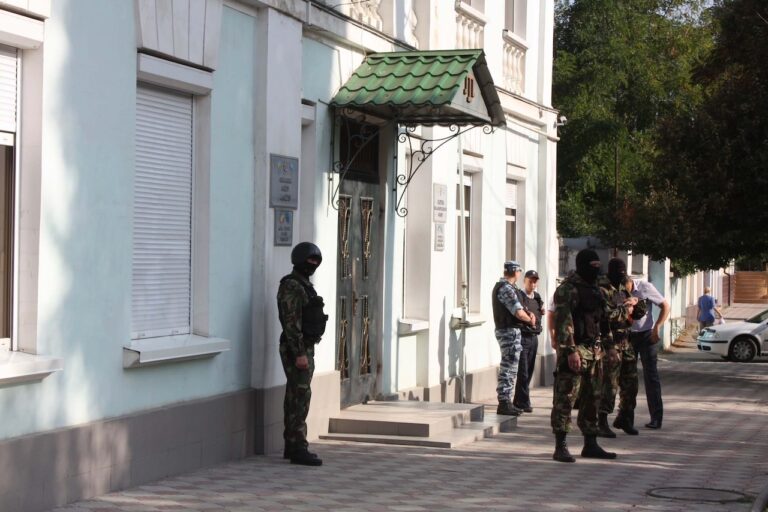(RSF/IFEX) – On 9 March 2004, Russian police arrested and questioned Irina Petrushova, editor-in-chief of the Kazakh opposition weekly “Assandi Times” (formerly “Respublika”), in St. Petersburg, on the basis of an arrest warrant issued by the Kazakh authorities. Petrushova was detained for several hours and subsequently released. “Petrushova has been harassed for several years in […]
(RSF/IFEX) – On 9 March 2004, Russian police arrested and questioned Irina Petrushova, editor-in-chief of the Kazakh opposition weekly “Assandi Times” (formerly “Respublika”), in St. Petersburg, on the basis of an arrest warrant issued by the Kazakh authorities. Petrushova was detained for several hours and subsequently released.
“Petrushova has been harassed for several years in Kazakhstan because of her newspaper’s political stance,” RSF noted. “It is unacceptable for this persecution to follow her to Russia,” the organisation added. RSF demanded that the Kazakh authorities justify the arrest warrant and asked for an explanation from the Russian Interior Ministry.
On a visit to St. Petersburg, Petrushova was arrested when she went to Police Station No. 19, in the Vyborg district, to register her presence in the city, as she is obliged to do as a Moscow resident.
Police handed the journalist a document from the Russian Interior Ministry to the effect that the Kazakh tax police were seeking her arrest for infringing a tax law (Article 222-2 of the Criminal Code).
Four and a half hours later, police received an order to release Petrushova unconditionally. An Interior Ministry source told her that the whole affair was a political matter and stressed that the Russian police would not get involved. When they released her, however, police warned there was a risk that the same situation could reoccur.
Petrushova told RSF that she had not received a summons from Kazakh courts and did not know what it could be concerning. Because she is a Russian citizen, she cannot be deported, but she is convinced that the Kazakh authorities are trying to keep her under surveillance.


